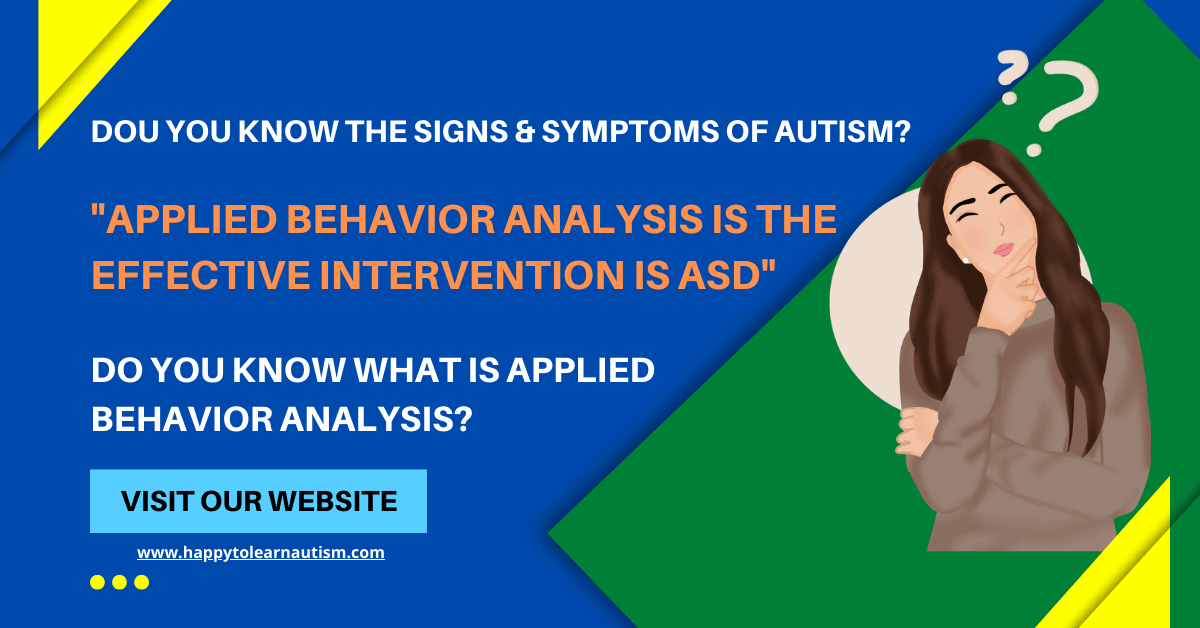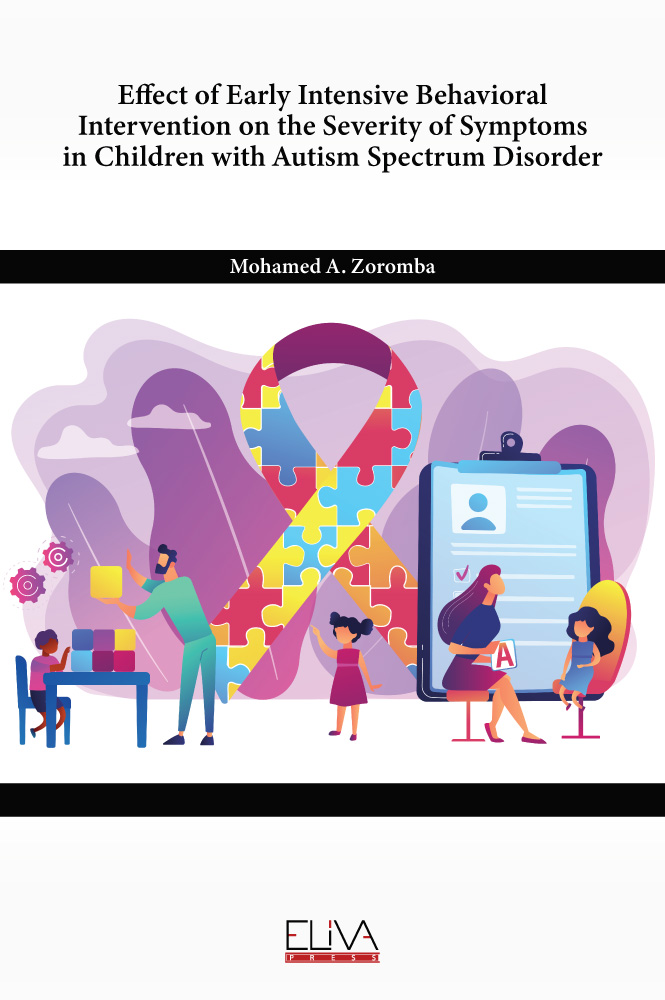When you should consider your family needs Autism Behavioral Therapy
When you should consider your family needs Autism Behavioral Therapy
Blog Article
Secret Indicators and Signs And Symptoms to Recognize in Individuals With Behavioral Autism
When you encounter someone with behavior autism, identifying vital indicators and signs is necessary. You may discover difficulties in social interactions and interaction, along with a strong need for routines. Additionally, sensory sensitivities can bring about frustrating experiences. Comprehending these characteristics can enhance your assistance and interventions, but there's even more to discover about just how these habits manifest in day-to-day circumstances. Let's discover what these indications really resemble.
Difficulties in Social Interactions
When you communicate with somebody on the autism range, you may notice they have a hard time with social signs and communication. These obstacles can make social interactions feel frustrating for them.
When they do engage, they might speak regarding their rate of interests in wonderful information without noticing if you're interested. Comprehending these obstacles can aid you approach communications with compassion and patience, cultivating a much more comfy atmosphere for both of you.
Difficulty With Verbal and Non-Verbal Communication

Recognizing these indications is important, as it aids you far better support and involve with people on the autism range. By comprehending their communication obstacles, you can promote extra meaningful connections and supply an extra encouraging environment.
Repetitive Behaviors and Routines
Communication difficulties usually accompany other signs of autism, such as repeated habits and a solid choice for regimens. You could notice that individuals with autism frequently participate in certain, repetitive activities, like hand-flapping, shaking, or duplicating expressions. These actions can offer convenience and a feeling of control in an often overwhelming globe.
Regimens are just as essential; numerous people grow when they adhere to a structured timetable. You might discover that modifications to these routines can lead to substantial distress. For instance, if they have a day-to-day ritual of eating breakfast at a particular time or following a particular path to institution, any disruption can create anxiousness.
Recognizing these patterns helps you understand their behavior and give assistance. By fitting their need for routine and allowing recurring activities, you can produce an extra comfortable atmosphere that reduces their challenges.
Sensory Level Of Sensitivities

Typical Sensory Triggers
Sensory sensitivities can considerably affect day-to-day live for people with autism, as particular stimuli usually set off frustrating responses. Common sensory triggers include loud noises, intense lights, and strong smells. You may see that sudden noises, like alarms or sirens, trigger anxiousness or distress. Fluorescent lighting in stores can feel awkward and harsh. Textures can also play a considerable function; harsh textiles or particular food appearances might be intolerable for you. Additionally, crowded places can overwhelm your senses, making it difficult to relax or focus. Comprehending these triggers can assist you handle your environment better. By recognizing what impacts you, you can take steps to decrease discomfort and improve your everyday experiences.
Behavior Reactions Explained
Understanding your behavior reactions to sensory sensitivities is essential, as they often disclose exactly how you interact with the globe. You may notice that particular noises, lights, or textures bewilder you, resulting in anxiousness or discomfort. When faced with these stimulations, you might take out, cover your ears, or perhaps react boldy. These reactions aren't just traits; they're your means of managing overstimulation. You may additionally discover yourself looking for certain sensory experiences, like deep pressure or quiet settings, to assist ground on your own. Identifying these patterns assists you understand your needs better and can lead exactly how you interact them to others. By acknowledging your sensory sensitivities, you can function towards developing an environment that really feels more manageable and comfy for you.
Coping Approaches Overview
Recognizing your sensory sensitivities is simply the very first step; currently it's time to explore coping techniques that can assist you handle those experiences properly. Beginning by creating a sensory toolkit tailored to your needs. This might consist of noise-canceling earphones, fidget playthings, or soothing scents. Establishing an organized regimen can likewise supply predictability, lowering anxiousness around sensory overload. When you really feel overloaded, take breaks in a silent room to collect yourself. Practicing mindfulness techniques like deep breathing can assist ground you in the minute. In addition, communicate your requirements with those around you; having encouraging loved ones can make a huge difference. Keep in mind, discovering what functions ideal for you might take time, so be patient like this and open to attempting brand-new strategies.
Restricted Rate Of Interests and Focus
While several people create a vast array of interests, those with autism typically demonstrate limited rate of interests and an extreme emphasis on specific subjects. You might see that somebody with autism can invest hours delving right into their preferred subject, whether it's a certain type of train, a details motion picture, or a scientific idea. This extreme focus isn't simply a pastime; it can come to be a central component of their identity and social communications.
You may locate that conversations focus on these interests, and they might battle to participate in more comprehensive topics. For them, these concentrated interests give comfort and a feeling of proficiency. While it's essential to encourage expedition of new topics, appreciating their interests is similarly important. By understanding and acknowledging these limited interests, you can promote an encouraging environment where they feel valued and comprehended, enabling more purposeful links and interactions.
Psychological Policy Difficulties
Individuals with autism frequently encounter difficulties in emotional regulation, which can be affected by their extreme focus on particular interests. You could see that when an individual is deeply taken part in a recommended task, they can experience strong emotions, whether exhilaration or stress. When things do not go as prepared., this intensity occasionally makes it tough for them to move equipments or manage their feelings - Autism Behavioral Therapy.

Irregularity in Developing Milestones
When it pertains to developing landmarks, you'll see that individuals with autism frequently reveal a vast array of variability. Some may hit milestones in a timely manner, while others could hang back or progress at a different pace. You may see a youngster succeed in language abilities yet battle with social communications. This inconsistency can be confusing, as traditional benchmarks don't always use.
It's necessary to identify that each person's trip is one-of-a-kind. Observing these patterns can aid you comprehend their staminas and needs much better.
Often Asked Questions
How Is Autism Detected in Children and Grownups?
To identify autism in adults and youngsters, experts assess actions, communication abilities, and social communications. They commonly use standard tests, meetings, and observations over here to determine if a private meets the standards for autism spectrum problem.
Are There Different Kinds Of Autism Spectrum Disorders?
Yes, there are various kinds of autism range conditions, including Asperger's disorder and prevalent developing disorder-not otherwise defined. Each type differs in seriousness and characteristics, so recognizing these distinctions can aid you much better support individuals with autism.
What Therapies Work for Individuals With Autism?
When considering effective treatments for individuals with autism, you'll discover choices like Applied Behavior Evaluation, speech treatment, and occupational treatment. Each technique can aid boost interaction, social abilities, and everyday functioning customized to private needs.
Can People With Autism Lead Independent Lives?
Yes, individuals with autism can lead independent lives. With the right assistance, skills training, and sources, you can help them establish self-sufficiency, take care of everyday tasks, investigate this site and thrive in numerous atmospheres, cultivating their independence.
Exactly How Can Households Assistance Enjoyed Ones With Autism?
You can support your liked ones with autism by developing an organized setting, urging their passions, exercising perseverance, cultivating interaction, and advertising social skills. Celebrate their achievements, no matter how small, and build a supportive community.
Although numerous individuals on the autism spectrum can understand and use language, they often face considerable difficulties with both spoken and non-verbal interaction. Recognizing these indications is important, as it aids you better support and involve with individuals on the autism spectrum. You may discover that people with autism often engage in specific, repetitive activities, like hand-flapping, rocking, or repeating phrases.Sensory sensitivities can considerably affect everyday life for individuals with autism, as certain stimuli typically activate frustrating responses.When it comes to developing landmarks, you'll see that people with autism usually reveal a wide array of irregularity.
Report this page